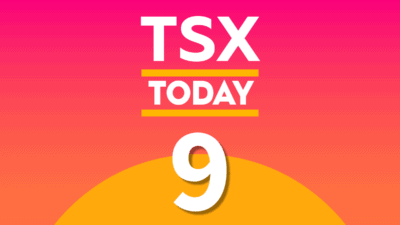If you went grocery shopping lately, you’ve probably experienced sticker shock. With the average inflation rate forecasted at over 5% for March, Canadians are feeling the squeeze in all aspects of their budget, with the price of food causing major headaches in particular.
Significant increases in the price of meat and dairy (6-8%) and baked goods and vegetables (5-7%) stem from a constellation of factors, including already stretched supply chains and the ongoing invasion of Ukraine, which recently caused the price of wheat futures to skyrocket.
Canadian investors looking to tilt their portfolios to the current macro-economic condition should consider food producers in the consumer defensive and basic materials sectors of the TSX. These are providers of essential products and services that can raise their prices and pass costs along, allowing them to stay profitable.
Nutrien
Nutrien (TSX:NTR)(NYSE:NTR) is one of Canada’s largest agricultural producers, providing an assortment of crop inputs and services such as potash, nitrogen, phosphate, and sulfate nutrients, seeds, and financing.
NTR currently trades at a very attractive valuation, with a forward P/E of 9.14, P/S of 2.09, P/B of 2.36, and EV/EBITDA of 9.99. The company has greatly improved operating cash flow ($3.89 billion) and total cash on the balance sheet ($499 million). Recently, it also posted incredible YoY quarterly revenue growth of 83.60%.
NTR recently hit 52-week highs at a price of $105.47 per share, well above both its 50- and 200-day moving averages of $79.51 and $68.81, respectively, suggesting good momentum. The stock has a beta of 0.77, making it slightly less volatile than the overall market. NTR also pays a small dividend of $1.92 per share for a 1.93% yield.
Saputo
Saputo (TSX:SAP) specializes in packaged food products, being Canada’s largest producer and distributor of dairy products domestically and internationally, with more than two-dozen brands under management.
SAP currently trades at a price of $30.84 per share, which is well under its 52-week high of $42.42. With its 50-day moving average of $29.53 crossing under its 200-day moving average of $32.29, more bearish movements could be on the way. Currently, SAP has a beta of 0.57, making it roughly half as volatile as the overall market.
SAP also pays a dividend of $0.72 per share, giving it a yield of 2.31%. The payout ratio is alarmingly high at 86.59%, which might not be sustainable, especially given that it only has $163 million on the balance sheet as of the latest quarter. Investors looking to buy SAP may want to hold for a better entry price.
The Foolish takeaway
Regardless of food prices, Canadians still need to eat, and food producers like NTR and SAP will enjoy higher revenues and profits for the time being. Investors can take advantage of these by buying consumer defensive stocks, which are a good play even in a recession. Both of these stocks have excellent management and fundamentals, which makes them good candidates for a long-term buy-and-hold portfolio.








